Anti-racism body slams minaret posters
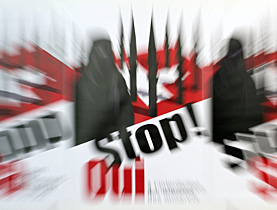
The Federal Commission against Racism says posters for the rightwing Swiss People's Party's anti-minaret campaign "incite hatred".
Cities around Switzerland have reacted differently. While Lausanne, Montreux, Fribourg, Neuchâtel and Yverdon-les-Bains followed Basel in outlawing the posters in publicly owned spaces, Geneva, Zurich, Biel, Winterthur and Lucerne have rejected the ban on free-speech grounds.
The main poster, which shows a woman in a burka and a Swiss flag with minarets springing out of it, implies that “the Muslim minority living in Switzerland may represent a terrible danger” the commission said in a statement.
Representatives of the People’s Party said the commission is censoring free-speech like Nazis and communists.
But the commission argued that freedom of expression ends at discrimination and limits are needed to safeguard Swiss society from action that incites hate.
“It’s important to have a space where democratic debate takes place, but we need to fix limits,” commission vice-president Sabine Simkhovitch-Dreyfus told swissinfo.ch. The commission had looked at five posters.
An initiative to ban the construction of minarets in Switzerland launched by the People’s Party and a small ultra-conservative Christian party comes to a nationwide vote on November 29. A poll conducted by the Isopublic institute showed 51.3 per cent of people would reject the ban were the vote held today.
Supporters see minarets as political symbols and as a sign of what they term “Islamicisation” in Switzerland. The Swiss government and parliament are recommending voters reject the initiative.
City bans
The statement by the federal anti-racism body followed an announcement by the Lausanne municipal authorities on Wednesday that they were banning the posters, as they portrayed “racist, disrespectful and dangerous” images.
“The limits of freedom of expression have been exceeded this time,” said local councillor Olivier Français. “What really shocks me is the violence and racism in this message and the use of the Swiss flag.”
Yverdon-les-Bains, in canton Vaud, also said it would ban the posters as they presented an “unacceptable amalgamation of people of Muslim faith and potential terrorists”.
But the Geneva authorities decided not to prohibit them, “out of respect for freedom of speech”, said spokesman Philippe d’Espine.
These moves follow a public ban on the posters on Tuesday by the Basel city authorities, which called them “racist”.
A spokesman for canton Basel City said the decision was based on a law against spreading racist ideologies or classing groups by ethnic, religious, cultural or physical characteristics.
But St Gallen says it sees nothing discriminatory in the poster and has approved it for display.
On Thursday the authorities in Zurich and Lucerne made a point of condemning the posters’ content.
One of Switzerland’s major media groups, Ringier, has said it will not publish the poster, while the other major group, Tamedia, will leave the decision to each publication. The most important papers in the group, including the Tages-Anzeiger and the free 20 Minuten dailies, will not carry it.
Rightwing reaction
“This commission, which has no democratic legitimacy, plays the role of censor, comparable to the Communist states and the Third Reich,” said young People’s Party members in a statement on Wednesday, adding that the public could make their own mind up.
The committee behind the anti-minaret initiative also described Basel’s decision as “purely arbitrary” and an attack on free speech.
Some observers feel the city bans will only give publicity to the party’s goal to ban minarets in Switzerland.
But Français, the Lausanne councillor, rejected this argument: “Whether you ban or permit such posters, they will always gain publicity; the authorities need to take their responsibilities regarding the limits [of freedom of expression].”
Black sheep lessons
The People’s Party has a track record of provocative political campaigns.
“The party has always played with the limits,” said Oscar Mazzoleni, who teaches at Geneva and Lausanne universities.
“It’s difficult to avoid getting caught up in its game, as their posters raise so many questions,” he told Le Matin newspaper.
In 2007 the party used a poster comparing “criminal foreigners” to black sheep needing to be kicked out of the country.
And for the 2007 federal elections the Valais branch of the party was heavily criticised for a poster depicting Muslims from behind praying before the parliament building in Bern and the slogan “Use your heads! Vote UDC.”
But an official racist complaint against the poster, lodged by the Valais public prosecutor’s office, was thrown out by the Federal Court in April 2009.
Simkhovitch-Dreyfus bemoaned the fact that Switzerland hadn’t really learned many lessons from the damage caused by the black-sheep campaign.
She said an article adopted into the penal code 15 years ago to tackle certain forms of racial discrimination “is a good thing, but it’s not enough”.
“Switzerland has to look at other means of combating discrimination.”
Simon Bradley, swissinfo.ch
The posters have been banned by:
Lausanne
Yverdon-les-Bains
Basel
Fribourg
Montreux
Neuchâtel
In Switzerland, more than three quarters of the population are Christians – 42% are Catholic, 35% Protestant and 2.2% other Christian denominations.
With more than 311,000 members (4.3%), Islam is the second-largest religion in the country. Twelve per cent of Muslims have a Swiss passport. They come mainly from the Balkans and Turkey. It is estimated this number could actually be 400,000.
The Jewish community has about 18,000 members (0.2%), of which 80% are Swiss.
There are 28,000 Hindus (possibly now 50,000) and 21,000 Buddhists in the country.
A minaret initiative was handed in to the government in July 2008 after more than the required 100,000 signatures were collected. The text is only one sentence long: “The building of minarets is forbidden.”
The government’s response, calling on the electorate to reject it, was much longer, running to 50 pages. In essence, the cabinet argues that the prohibition of the spires, usually found outside mosques, would violate international human rights norms. It also said that a ban would hinder integration and would be ineffective in the fight against extremism.
The Swiss population will vote on the issue on November 29.
The country’s Muslim community says it is stunned by what it sees as an “Islamophobic” move, which it warns will undermine already fragile relations.
Both the Protestant and Catholic churches have rallied to their defence, along with most political parties, human rights experts and a number of cabinet ministers.
In Switzerland, only the mosques in Geneva, Zurich and Wangen near Olten have a minaret, Winterthur’s mosque only has a small one. But the call to prayer is not made from these minarets.
Building applications for minarets in at least two other towns, Langenthal and Wil, led to heated debates at the local level.

In compliance with the JTI standards
More: SWI swissinfo.ch certified by the Journalism Trust Initiative

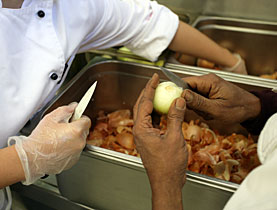

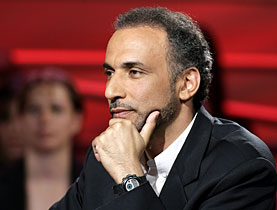
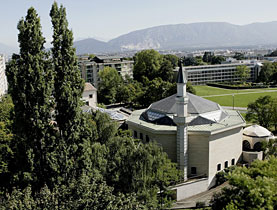
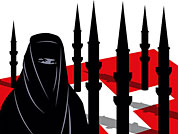
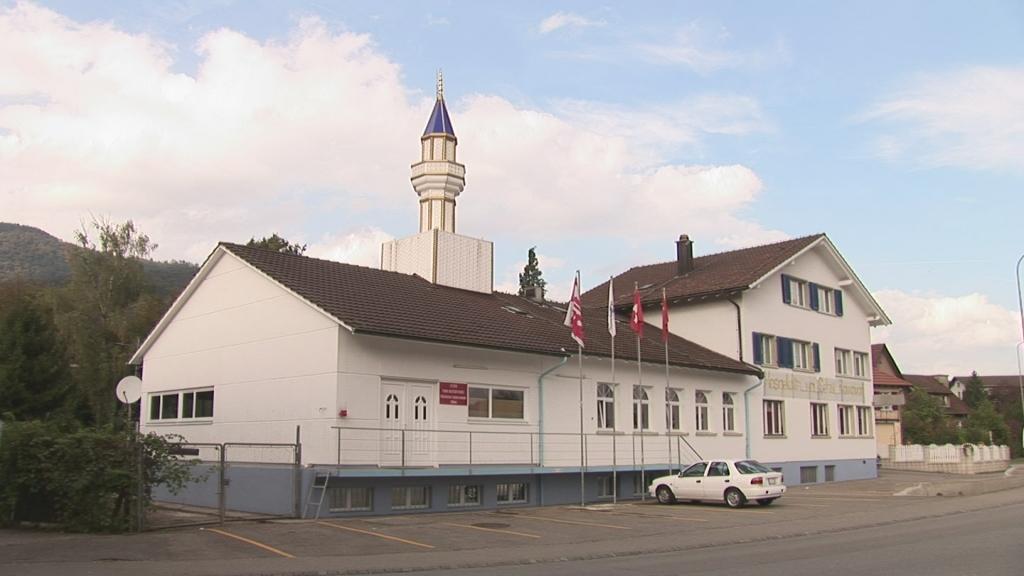
You can find an overview of ongoing debates with our journalists here. Please join us!
If you want to start a conversation about a topic raised in this article or want to report factual errors, email us at english@swissinfo.ch.